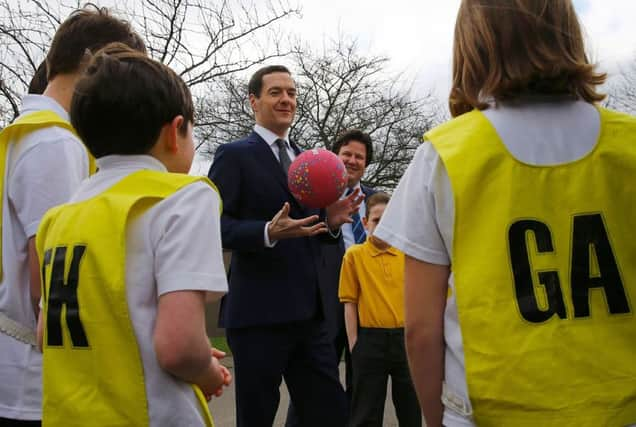Economic forecasts may lead to lower UK living standards


The Institute for Fiscal Studies (IFS) said the revisions set out by George Osborne had implications for the wider economy as well as the public finances, and that he was “running out of wriggle room” if he was to meet his self-imposed target of delivering a budget surplus by the time of the next general election.
Mr Osborne was forced to admit that he would need tens of billions more borrowing after the Office for Budget Responsibility said growth would be lower than expected.
Advertisement
Hide AdAdvertisement
Hide AdIFS director Paul Johnson said: “That loss largely arises from changes in assumptions about future productivity growth over the rest of the parliament. If the OBR is right about that, we should all be worried. This will lead to lower wages and living standards, not just lower tax revenues for the Treasury.”
Mr Johnson said that after a revision of the forecasts by the OBR at the time of the Autumn Statement in November led Mr Osborne to claim he had “found” an additional £27 billion – enabling him to abolish planned cuts to tax credits – the latest changes had “lost” the Exchequer £56bn, leaving a net loss of £29bn.
He warned the Chancellor was “running out of wriggle room” if he was to meet his self-imposed target of delivering a budget surplus by the next general election.
Mr Johnson said: “His chances of him having a surplus in 2019-20 are only just the right side of 50-50. But it is also important to remember that the rule gets suspended if, at any point, growth drops below 1 per cent. With lower expected growth in the economy the chances of this happening is now greater.
“These risks are exacerbated by the fact that there are in fact £8bn of tax cuts in the Budget. If there was another downgrade in fiscal forecasts of a similar magnitude and the Chancellor did wish to remain on course to deliver a budget surplus in 2019-20 then this would surely require more real policy change – presumably incorporating at least some permanent tax rises and specific spending cuts.”
Mr Osborne played down suggestions that he will be forced to find more spending cuts or put up taxes in order to balance the books by the time of the next general election.
He said: “A completely independent body which everybody respects – the Office for Budget Responsibility – has looked at those plans and it says, ‘If you hold to the course, you deliver those plans, if the economy grows as expected, then we will have a surplus towards the end of the parliament’.”